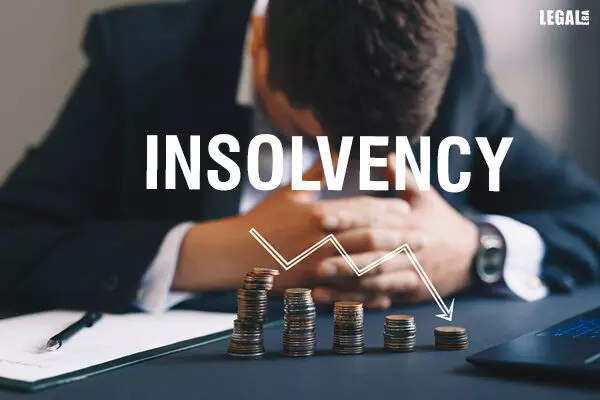- Home
- News
- Articles+
- Aerospace
- Artificial Intelligence
- Agriculture
- Alternate Dispute Resolution
- Arbitration & Mediation
- Banking and Finance
- Bankruptcy
- Book Review
- Bribery & Corruption
- Commercial Litigation
- Competition Law
- Conference Reports
- Consumer Products
- Contract
- Corporate Governance
- Corporate Law
- Covid-19
- Cryptocurrency
- Cybersecurity
- Data Protection
- Defence
- Digital Economy
- E-commerce
- Employment Law
- Energy and Natural Resources
- Entertainment and Sports Law
- Environmental Law
- Environmental, Social, and Governance
- Foreign Direct Investment
- Food and Beverage
- Gaming
- Health Care
- IBC Diaries
- In Focus
- Inclusion & Diversity
- Insurance Law
- Intellectual Property
- International Law
- IP & Tech Era
- Know the Law
- Labour Laws
- Law & Policy and Regulation
- Litigation
- Litigation Funding
- Manufacturing
- Mergers & Acquisitions
- NFTs
- Privacy
- Private Equity
- Project Finance
- Real Estate
- Risk and Compliance
- Student Corner
- Take On Board
- Tax
- Technology Media and Telecom
- Tributes
- Viewpoint
- Zoom In
- Law Firms
- In-House
- Rankings
- E-Magazine
- Legal Era TV
- Events
- Middle East
- Africa
- News
- Articles
- Aerospace
- Artificial Intelligence
- Agriculture
- Alternate Dispute Resolution
- Arbitration & Mediation
- Banking and Finance
- Bankruptcy
- Book Review
- Bribery & Corruption
- Commercial Litigation
- Competition Law
- Conference Reports
- Consumer Products
- Contract
- Corporate Governance
- Corporate Law
- Covid-19
- Cryptocurrency
- Cybersecurity
- Data Protection
- Defence
- Digital Economy
- E-commerce
- Employment Law
- Energy and Natural Resources
- Entertainment and Sports Law
- Environmental Law
- Environmental, Social, and Governance
- Foreign Direct Investment
- Food and Beverage
- Gaming
- Health Care
- IBC Diaries
- In Focus
- Inclusion & Diversity
- Insurance Law
- Intellectual Property
- International Law
- IP & Tech Era
- Know the Law
- Labour Laws
- Law & Policy and Regulation
- Litigation
- Litigation Funding
- Manufacturing
- Mergers & Acquisitions
- NFTs
- Privacy
- Private Equity
- Project Finance
- Real Estate
- Risk and Compliance
- Student Corner
- Take On Board
- Tax
- Technology Media and Telecom
- Tributes
- Viewpoint
- Zoom In
- Law Firms
- In-House
- Rankings
- E-Magazine
- Legal Era TV
- Events
- Middle East
- Africa
Delhi High Court Rules: Past Violations Bar Appointment as Insolvency Professional

Delhi High Court Rules: Past Violations Bar Appointment as Insolvency Professional
The Delhi High Court recently underscored the paramount importance of an impeccable reputation and character for individuals seeking to become an Insolvency Professional (IP). This statement emerged while dismissing a petition filed by a banker challenging the Insolvency and Bankruptcy Board of India (IBBI)'s decision to deny her IP registration. The denial stemmed from her 2015 conviction for violating Securities and Exchange Board of India (SEBI) regulations.
The petitioner insisted that the 2015 violations, for which she has already faced consequences and paid penalty, should not be a lifelong barrier to her future career and urged against permanent disqualification.
The Court's recent order affirms the Board's discretionary powers to guarantee a "clean and transparent" corporate insolvency process, asserting that a spotless recent past alone cannot guarantee suitability for appointment as an Insolvency Professional.
When assessing an individual's suitability to be appointed as an Insolvency Professional, past actions and conduct cannot be disregarded. A clean immediate past, while positive, does not automatically guarantee consideration for the position, stated Justice Subramonium Prasad.
"Discretion has been given to the Board to ensure that the corporate insolvency process is clean and free. Good reputation and character of a person is very important for appointment as an Insolvency Professional. The decision to determine as to whether a person is fit and proper to be appointed as Insolvency Professional is based on the subjective satisfaction of the Board," Justice Prasad added.
Underlining the vital responsibility entrusted to insolvency professionals who become the guiding force of companies in the throes of insolvency resolution, the Court stressed that even the slightest disqualification renders an individual unsuitable for this position, thereby potentially undermining the effectiveness of the Insolvency and Bankruptcy Code.
The Court noted that the petitioner's past conviction for fraudulent practices and violation of market integrity justified the Board's decision to deny her IP registration, even though she otherwise met the eligibility criteria. This decision cannot be deemed arbitrary.
The Court affirmed that the regulations grant the Board the authority to deny IP registration to individuals implicated in any form of financial misconduct.
"The question of adjudging as to whether a person is suitable for a particular job or not should be left to the appointing authority and more particularly when the appointing authority consists of experts. It is for the experts to decide as to who is best and most qualified for a particular job. The antecedents of a person is an important criterion to decide as to whether the said person is suitable for the post or not," the Court said.



